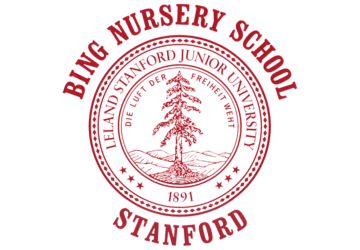Fall Staff Development Day: Radical Empathy and Ethical Song Research

By Chuyi Yang and Jessica Goodman, Teachers
Bing Nursery School staff learned about and grappled with the concepts of radical empathy, systems of oppression and ethical song choice at the school’s 2021 Fall Staff Development Day.
The event, held Oct. 11, started with a workshop about uplifting empathy. Presenters Bianca Tonatzin Zamora, associate director of diversity, equity and inclusion at Stanford University, and Cindy Cho, a human resources manager at Stanford’s School of Humanities and Sciences, walked Bing staff through the different ways in which empathy could help us break down oppressive and discriminatory systems. These systems, such as “old guard” bigotry, sexism, racism, heterosexism and xenophobia are prevalent but often hidden within our society. Addressing them requires individuals to perform great personal reflection and engage in uncomfortable conversations with their peers, they said.
Zamora and Cho highlighted scholar Terri Givens’ concept of radical empathy to combat systems of oppression and provide care for those who have been affected. Radical empathy differs from regular empathy in that it encompasses both the emotional and cognitive components of empathy—the way one feels how another feels and the way one understands how another sees the world. Furthermore, radical empathy combines these two aspects with action, requiring one to practice empathy with a focus on making change at both an individual and societal level. Only when this connection is made can we reasonably expect societal change to occur.
Systems of oppression often manifest themselves in the ways we act, think and communicate. Phrases like “they aren’t the right fit” or misrepresentations such as “the angry Black woman” are common examples of how discriminatory values have adopted modern, more subtle forms. When faced with microaggressions, misrepresentations and prejudice, we can draw upon the three Ds method—Distract, Direct and Delegate—to intervene. This might include distracting either the harasser or target with an urgent question, directly addressing the harmful behavior or delegating the intervention to someone who can help. Bing staff practiced using the three Ds in scenarios acted out by Zamora and Cho. Staff were able to pause the acted scenarios and share their thoughts on how they would address the situation.
In the afternoon, staff joined a Zoom video conference with Karen Howard, an associate professor of music education at the University of St. Thomas, for a presentation titled “Ethical Song Research.” An ethnomusicologist, Howard’s work centers on diversity in music, global musical traditions and anti-bias pedagogies. Howard—the editor of GIA Publications, Inc.’s World Music Initiative series of books and an affiliate of the Smithsonian Institute’s expansive sonic collection (Smithsonian Folkways Recordings)—attuned teachers to the cultural ramifications of their music choices.
Examining the differences between cultural appreciation and cultural appropriation, Howard discussed the necessity of researching the origins, meanings and contexts of songs and music used in our classrooms. Scrutinizing musical selections is particularly important in the early childhood education sphere, as curriculum in this canon is entwined with a history of racism and borrowing from marginalized groups, Howard said. She added that teachers have a duty to acknowledge the cultural implications of chosen material with the classroom. A musical vetting approach ensures that music in the classroom is a medium of empowerment and respect for the cultures and histories from which they came. Researching the songs allows teachers to not only assess their socio-cultural appropriateness but also provides information to share with children.
Post-presentation, Howard fielded questions from Bing staff about forming classroom music libraries that are culturally appreciative rather that culturally appropriative. Teachers brought up the Smithsonian Folkways Recording database—an extremely culturally expansive and diverse collection while also a capsule of historically complicated music. One example of this complexity is the “Lead Belly Sings for Children” compilation album of recordings from the 1940s, which includes the folk and blues artist’s covers of “Jimmie Crack Corn” and “Pick a Bale of Cotton,” both songs entrenched in the United States’ period of slavery. Howard spoke to how these songs are important historical artifacts yet should not be shared with children unless the socio-cultural currents of the lyrics will be tackled. If one does not intend on exploring, grappling and making explicit the racism present within such songs, then other musical selections should be made. Howard demands that teachers acknowledge the background and origin of a song before exposing children to that selection.
The discussions from the day were part of a larger ongoing conversation to promote diversity, equity and inclusion at Bing and Stanford University. As Howard’s workshop highlighted, it is important to recognize the role we play as educators and community members. We need to think critically about the curriculum we introduce into the classroom and understand the history and impact that it can have on children. Recognizing systems of oppression and learning how to address them will help Bing teachers ensure a safe and welcoming learning environment for children and families. As we move forward into the year, we hope to build on this staff development day and create a more inclusive school environment for all.